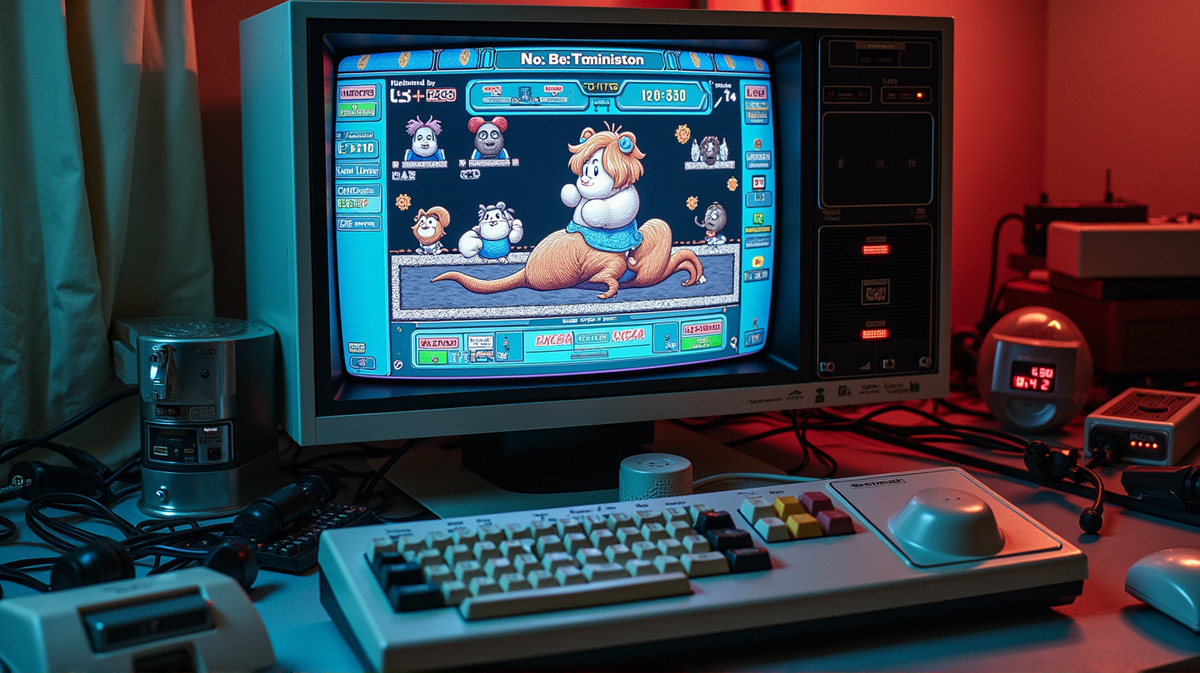Unlocking the Mysteries of the 2003-era Famicom
Explore how a Nintendo Famicom clone from 2003 doubled as a curious educational computer, recalling a time of innovation and adaptation.

In the bustling realm of gaming nostalgia, few artifacts produce more curiosity than the Nintendo Famicom and its myriad clones. Imagine stepping back into the early 2000s, where a Famicom clone transcended its gaming roots to embrace an unlikely role as an educational computer.
The Unexpected Discovery
Nicole Branagan’s serendipitous find at an online Goodwill store led to the uncovering of a European market Famiclone, nestled in its pristine original box. The allure of the console lay not just in its nostalgic value but in its ambition to serve dual purposes—playing games and purportedly educating families.
Intriguing Design Elements
The system features a keyboard-integrated design, complete with cut-outs hinting at additional functionalities like an alarm clock. Inside, epoxied-over chips suggest a construction based on V.R. Technology’s VTxx-series. Despite the mystery surrounding its manufacturer, the device beckons curious eyes with its design ingenuity.
Functional Yet Flawed
Equipped with a cartridge slot, it provides a 48-in-1 gaming experience with Famicom compatibility—albeit imperfect due to remapped keys. The lack of a save function restricts its educational potential but sparks dialogues around its intended purpose and usability.
Software and Cultural Context
While offering spartan software, its significance in markets like China during the 90s and 2000s was notable. With limited access to genuine computers and banned consoles, these Famiclone machines clandestinely doubled as educational tools, blending play with learning. As stated in Hackaday, these machines filled a unique niche.
Legacy of a Bygone Era
Reflecting on this fascinating artifact opens a window to a time when blending technology with play was both a necessity and innovation. The Famicom clone, with its humble aspirations, remains a testament to a pivotal era when entertainment subtly merged with education.
As enthusiasts continue to unravel its mysteries, the 2003-era Famicom endures not just as a relic of the past but as a canvas of untapped potential and overlooked brilliance.





